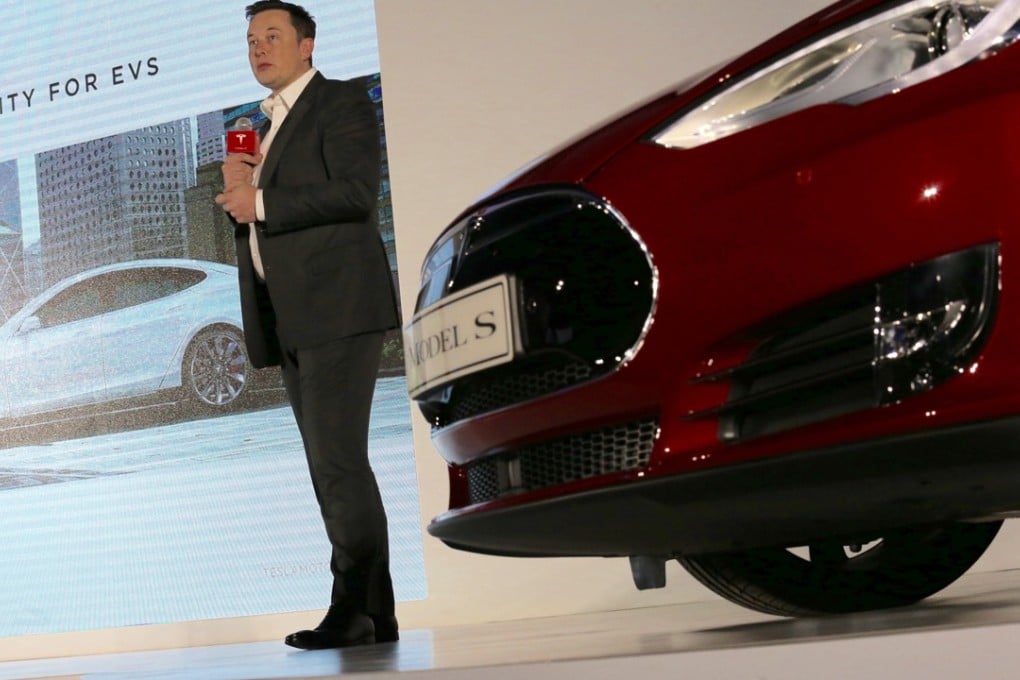With Tesla’s Model S now Hong Kong’s top-selling sedan, chief Elon Musk predicts city to become world leader in electric vehicles
Paypal, SpaceX and Tesla innovator Musk has eyes on the future of electric vehicles in Hong Kong

Electric car-maker Tesla expects Hong Kong to be the “leader of the world” in electric vehicle adoption, following phenomenal growth in the city last year, CEO Elon Musk said.
Tesla sold 2,221 Model S sedans in 2015, making the electric car the top-selling sedan.
“Hong Kong is a beacon city for electric vehicles, [it can] serve as an example to the rest of the world on what to do,” Musk said yesterday. “I currently do not foresee any city exceeding Hong Kong. It will be the leader of the world,” he added.

From 2014 to 2015 alone, new registrations for electric vehicles in Hong Kong grew 270 per cent, said Tesla. Its Model S vehicle accounts for over 70 per cent of all electric vehicles on the road in Hong Kong.
As of end December, there were 4,198 electric vehicles on the road, compared to 100 electric vehicles in Hong Kong at the end of 2010, according to statistics from the Environmental Protection Department in Hong Kong.